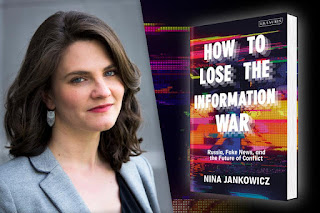In a recent speech at Stanford, former president Barak Obama advocated for a radical reimagining of the First Amendment in response to recent advances in technology. It was an interesting mix of sharp insight and partisan misinformation. But there is one statement that cuts to the heart of his argument and merits careful thought.
Obama said, “it’s not necessary for people to believe this information in order to weaken democratic institutions. You just have to flood a country’s public square with enough raw sewage. You just have to raise enough questions, spread enough dirt, plant enough conspiracy theorizing that citizens no longer know what to believe. Once they lose trust in their leaders, in mainstream media, in political institutions, in each other, in the possibility of truth, the game’s won.”
Three points jump out of this passage. First, it ignores that our democratic institutions, themselves, have destroyed their own credibility through egregious misconduct. Second, it assumes that citizens can be rendered totally unable to know the truth. Third, it implies that unquestioning trust in political leaders, mainstream media and political institutions will bring infallible truth.
While there are countless examples of institutional misconduct that have weakened democratic institutions, let’s name only one. The Department of Justice allowed the Russian collusion theory to fester for years while possessing reams of evidence that it was a hoax cooked up by the failing Clinton Campaign. The DOJ is not discredited by “raw sewage,” but by its own criminal misconduct.
Fool me once, shame on you; fool me twice, shame on me. Until the American public sees that the miscreants behind this massive fraud are held to account, that public would be foolhardy to trust the DOJ as an objective and truth-seeking institution. The same can be said of every news outlet that eagerly allowed itself to be the stooge of fraudulent sources.
 |
| Christopher Wray |
That brings us to the second claim. Obama is right to observe that many citizens no longer know whom to believe. Outrageous falsehoods peddled by legacy media and three-letter agencies have disorientated millions who once afforded them great trust. But, he is wrong to say that they cannot know what to believe.
The world has always been filled with truth and lies in equal measure. But blessed by rational thought that sorts one from the other, Western civilization has not succumbed to nihilistic claims that truth is impossible to know. That is the entire point of classical education. From Plato, Socrates and Aristotle to Bacon, Newton and Einstein, philosophy, science and religion equip all men, women and children to ferret out the truth for themselves.
On Easter morning two millennia ago, there was not only one narrative, but two. The women who arrived at Jesus’ tomb reported that Jesus had risen from the dead. But, the soldiers guarding the tomb spread a different narrative. The chief priests and elders convinced them to “Tell people, ‘His disciples came by night and stole Him away while we were asleep” (Matt. 28:13 ESV). One of these stories was true. The other was a lie.
From then until now, each person must weigh the evidence and decide for himself. On one side, we have the eye-witness testimony of Peter, all twelve apostles, five hundred well-known individuals, James, and St. Paul (1 Corinthians 15:5-8). These people were public figures, available for decades of cross-examination and careful observation. By contrast, nobody even remembers the names of the soldiers who told their competing story. And, unlike their counterparts, they were never pressured to change their story by torture and death.
 |
| Nina Jankowicz |
Will Alejandro Majorkas’ “Disinformation Governance Board,” weigh in on this debate? Will Nina Jankowicz, who obscenely mocks Christmas, tell us whether to believe the soldiers or the apostles? Without a doubt, there are some reading this column who want just that. Certainly, totalitarian regimes from the ancient Romans to the Chinese Communists have done it for millennia.
Every civilization throughout history has seen its most powerful institutions—not the least—wage war on the truth. From the chief priests and elders, to the Bolsheviks and Maoists, regimes propped up by lies demand to be regarded as the sole source of truth. By contrast, small minorities armed with the truth always prevail, sooner or later. Sooner is better.
Obama’s call for “trust in their leaders, in mainstream media, in political institutions,” is the siren song of those who control these institutions. In reality, no human being or human institution is worthy of unquestioning trust. Any leader who claims to be the final arbiter of truth discredits himself. Any news source that claims infallibility has proved itself fallible. Any institution that demands to be trusted without transparency has disqualified itself from any trust whatsoever.
Technology has not rendered the First Amendment more dangerous, but more necessary than ever.

No comments:
Post a Comment